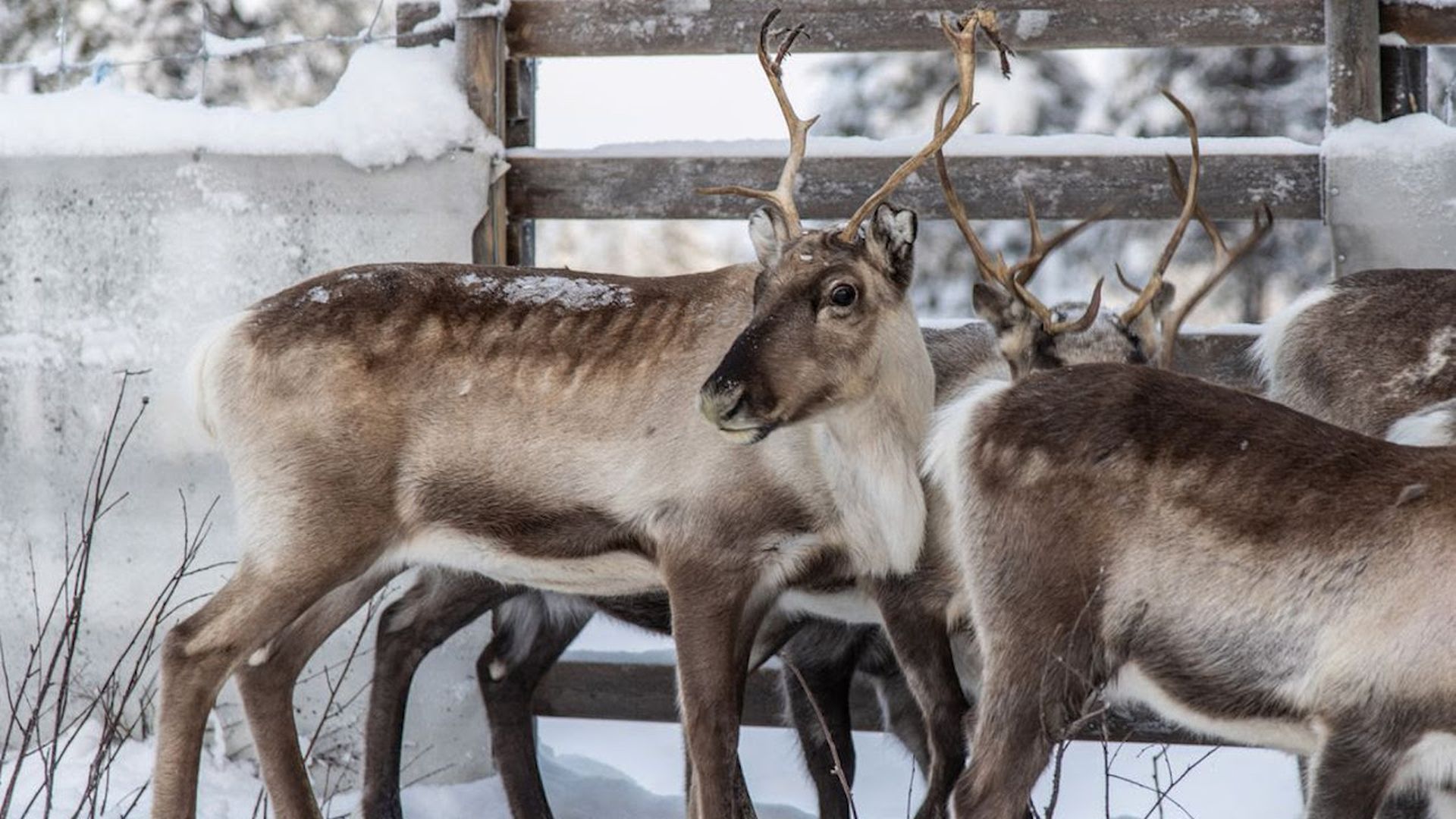Dec 10, 2019 - Energy & Climate
Extreme weather chokes off reindeer food supply in Swedish Arctic
Add Axios as your preferred source to
see more of our stories on Google.

Reindeer in a Swedish corral wait to be released onto winter pastures on Nov. 30. Photo: Malin Moberg/AP
